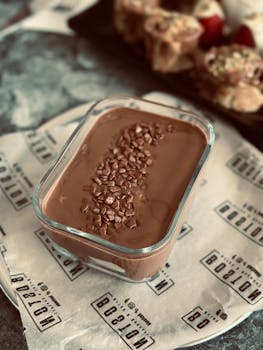Curious cats love to explore new things, including whatever you're sipping on. But if your feline has shown interest in your kombucha, you might be wondering: Is kombucha safe for cats? While this trendy fermented tea offers potential health benefits for humans, it’s not as straightforward when it comes to our furry friends. Let’s explore whether kombucha is a good idea for your cat and what to do if they’ve already had a taste.
🍵 What Is Kombucha?
Kombucha is a fermented drink made from tea, sugar, and a SCOBY (symbiotic culture of bacteria and yeast). It’s popular among humans for its potential probiotic benefits, which are believed to promote gut health, boost immunity, and aid digestion. The drink is often slightly fizzy, tangy, and may contain added flavors like fruit or herbs.
While kombucha may be a go-to wellness drink for people, it’s important to remember that cats have very different dietary needs and tolerances. What’s healthy for us isn’t always safe for them.
🐱 Can Cats Drink Kombucha?
The short answer is no, cats should not drink kombucha. Although kombucha isn’t necessarily toxic to cats in small amounts, it contains ingredients and compounds that can be harmful or upsetting to their digestive systems. Here’s why:
- Fermentation byproducts like alcohol and acetic acid
- Caffeine from the tea base
- Added sugars or flavorings
These elements can potentially cause health issues ranging from mild stomach upset to more serious problems, depending on the amount consumed and your cat’s individual sensitivity.
🚨 Why Kombucha Can Be Dangerous for Cats
Kombucha poses risks to cats for several reasons. Here are the key factors to consider:
- Alcohol content: During fermentation, kombucha produces trace amounts of alcohol. While this is minimal for humans, even small amounts of alcohol can be toxic to cats, leading to symptoms like vomiting, lethargy, and coordination issues.
- Caffeine: Kombucha is often made with black or green tea, which contains caffeine. Cats are highly sensitive to caffeine, and ingesting it can result in hyperactivity, increased heart rate, or even tremors.
- Acidity: The acetic acid in kombucha gives it a tangy taste, but this acidity can irritate your cat’s stomach lining, potentially causing vomiting or diarrhea.
- Sugars and additives: Many commercial kombucha brands contain added sugars, fruits, or herbs that may not be safe for cats. Xylitol, a common artificial sweetener, is highly toxic to pets.
Even if your cat only drinks a small amount of kombucha, it’s better to err on the side of caution and monitor them for any unusual symptoms.
🩺 Signs Your Cat May Have Drunk Kombucha
If you suspect your cat has had a sip of kombucha, watch for the following symptoms:
- Vomiting or diarrhea
- Loss of appetite
- Lethargy or unusual tiredness
- Hyperactivity or restlessness
- Shaking or tremors
- Increased heart rate
These symptoms may appear within a few hours of ingestion. If your cat shows any of these signs, especially if they worsen, consult your veterinarian immediately.
💡 What to Do If Your Cat Drinks Kombucha
Accidents happen, and if your cat manages to lap up some kombucha, here’s what you should do:
- Remove the drink: Take the kombucha away immediately to prevent further ingestion.
- Rinse their mouth: Use plain water to gently rinse your cat’s mouth, especially if the kombucha contains sugary or flavored additives.
- Monitor for symptoms: Keep a close eye on your cat for any unusual behaviors or signs of illness.
- Contact your vet: If your cat shows symptoms like vomiting, lethargy, or tremors, call your vet or a pet poison hotline right away.
Remember, prompt action can make a big difference in preventing complications.
🍴 Safe Alternatives for Curious Cats
If your cat seems interested in what you’re drinking, there are safer ways to satisfy their curiosity. Consider these pet-friendly options:
- Plain water: Always the best and healthiest choice for hydration.
- Cat-friendly broths: Low-sodium chicken or fish broths can be a tasty treat.
- Catnip tea: Brewed catnip in water (cooled to room temperature) can be a fun and safe alternative.
These options can keep your cat happy and hydrated without the risks associated with kombucha.
FAQs
Q: Can cats have a tiny sip of kombucha?
A: While a small sip is unlikely to cause serious harm, it’s best to avoid kombucha altogether due to its potential risks.
Q: What should I do if my cat drank kombucha with alcohol?
A: Contact your vet immediately, as alcohol is toxic to cats. Even small amounts can be dangerous.
Q: Is homemade kombucha safer for cats?
A: No, homemade kombucha still contains caffeine, acidity, and possible alcohol traces, making it unsuitable for cats.
Q: Are there any benefits of kombucha for cats?
A: Kombucha’s probiotic benefits are designed for human gut health and aren’t appropriate or necessary for cats. Cats get all the probiotics they need from a balanced diet.
References
Book a $49 online vet consultation at https://www.dialavet.com for fast, expert advice.























